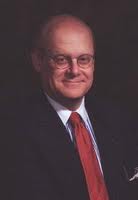The Impact of Religion on the Civil War
 Thursday, August 27, 2015 at 01:37PM
Thursday, August 27, 2015 at 01:37PM  From Allen Guelzo's recent essay in Did Religion Make the Civil War Worse? in The Atlantic.
From Allen Guelzo's recent essay in Did Religion Make the Civil War Worse? in The Atlantic.
If there is one sober lesson Americans seem to be taking out of the bathos of the Civil War sesquicentennial, it’s the folly of a nation allowing itself to be dragged into the war in the first place. After all, from 1861 to 1865 the nation pledged itself to what amounted to a moral regime change, especially concerning race and slavery—only to realize that it had no practical plan for implementing it. No wonder that two of the most important books emerging from the Sesquicentennial years—by Harvard president Drew Faust, and Yale’s Harry Stout—questioned pretty frankly whether the appalling costs of the Civil War could be justified by its comparatively meager results. No wonder, either, that both of them were written in the shadow of the Iraq War, which was followed by another reconstruction that suffered from the same lack of planning.
What kept the nation feeding an entire generation into the Civil War’s meat grinder, especially if the war’s endgame prospects were so unclear? The answer, in Stout’s version, was American religion. A war which began as a fairly colorless constitutional dispute over secession was transformed by a tidal wave of “millennial nationalism” into a crusade with no off switch. Faust flips the causal equation. If religion did not exactly drive Americans to war, then war drove Americans to religion as the justification for its lethally expensive costs. “The war’s staggering human cost demanded a new sense of national destiny,” wrote Faust, “one designed to ensure that lives had been sacrificed for appropriately lofty ends.” A nation guided by realpolitik knows when to cut its losses. A nation blinded by the moral gleam of a “fiery gospel writ in burnished rows of steel” and charmed by the eloquence of a president with an uncanny knack for making his assessment of political problems sound like the Sermon on the Mount, obeys no such limitations.
Guelzo concludes,
In exposing the shortcomings of religious absolutism, the Civil War made it impossible for religious absolutism to address problems in American life—especially economic and racial ones—where religious absolutism would in fact have done a very large measure of good. Some leaders, Martin Luther King prominent among them, have since invoked Biblical sanction for a political movement, but that has mostly been tolerated by the larger, sympathetic environment of secular liberalism as a harmless eccentricity which can go in one ear and out the other. “Never afterward,” wrote Alfred Kazin of the war, “would Americans North and South feel that they had been living Scripture.” I do not know that Americans have been the better for it.


Reader Comments